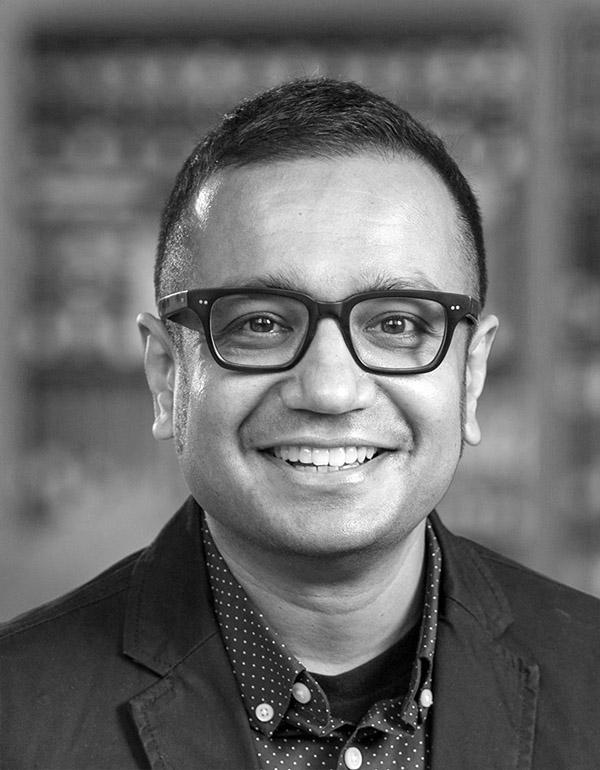
|
Name |
Dr Kush Patel |
|
Area of Practice |
Educator, Writer, and Public Scholar (Architectural History and Theory; Design Studies; Public Humanities; Digital Humanities) |
|
Education |
PhD in Architecture, University of Michigan, Ann Arbor (with Certificate: U-M Graduate Teacher, Center for Research on Learning and Teaching) MSc in Architectural Design Studies, University of Michigan, Ann Arbor MArch in Urban Design, CEPT University, Ahmedabad BArch, South Gujarat University, Surat |
|
Work Experience |
|
|
Interest Areas |
Questions of participatory politics, social production of space, and queer feminist histories, working with forms of knowledge and expertise across voice and social difference; Anti-colonial digital humanities pedagogy, public scholarship, community-engaged learning and archiving; Architecture, infrastructure, and the city. |
|
Current Practice at Srishti |
Domains include Technology and Change; Contemporary Art Practice; Critical Design and Digital Humanities Pedagogy; Just Futures Transdisciplinary Research |
|
Creative Practice and Outreach |
Co-lead and co-founder of the Pedagogy of the Digitally Oppressed Collective (read here), which is a transnational public scholarship practice that fosters queer, feminist, and anti-colonial approaches to digital humanities teaching through academic talks, writings, and teaching across a range of peer- and community-reviewed conferences, platforms, sites, and publications, Editorial Board Member, Journal of Interactive Technology and Pedagogy (JITP), City University of New York (CUNY), 2022-Present. https://cuny.manifoldapp.org/journals/jitp Topic Editor (with Danica Savonick), Reviews in DH, a peer-reviewed journal and project registry in critical digital humanities, 2023-Present, https://reviewsindh.pubpub.org/ ORCID ID: https://orcid.org/0000-0002-1610-8871
Selected Engagements:Academic and Special Topic Editing
Paper Presentations
Workshop Design and Lead
Roundtable Organization and Participation
Panel Organization and Participation:
Invited Talks:
Selected PublicationsJournal Articles
Book Chapters
Books
Public Writings and Digital Media
|
|
Recent Units Facilitated |
MA in Technology and Change Course Units: + Gender and Technology (Theory and Understanding Seminar) + Care Matters and Justice Dreams (Studio) + If Technology Will Not Save Us, What Will? (Theory and Understanding Seminar) + Decolonizing Design? (Studio Integrated Theory and Understanding Seminar) + Letters to Futures: Just Design Writing (Theory and Understanding Seminar) + Just Futures Co-lab Stewardship (https://srishtimanipalinstitute.in/centers-and-labs/just-futures-co-lab) and PG Capstone Mentorship (Transdisciplinary Research) + Introduction to Digital Storytelling Committed to Anti-Colonialism (MAHE Summer School) Doctoral Program in Art, Design, and Transdisciplinary Studies: + Feminist and Queer Worldmaking (Seminar) |
Projects showcase:
Care Matters and Justice Dreams invited MA and M.Des students across the SMI art and design clusters to produce care work biographies of their interactions with technology. The first iteration of this studio produced 10 student-led narratives, covering a range of critiques from period-tracking gender exclusive apps and thinking with online mutual-aid networks to mental health effects of and counters with social media such as Twitter and Instagram.
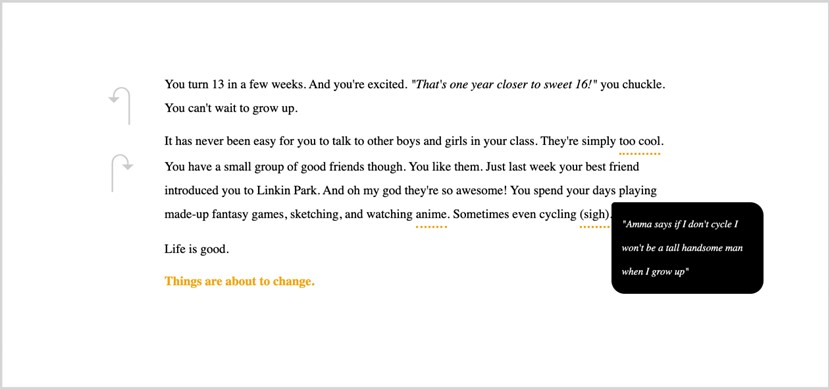
Image: Cover page of Shamanth Joshi’s Twine story called “Identity Games” (December 2021) [Private]. As a self-reflective account of how binary roles and bodies attached to video game characters have shaped their understanding of gender identity, Identity Games calls attention to how game design and designers play with us by reproducing cis-het logics in structure and representation.
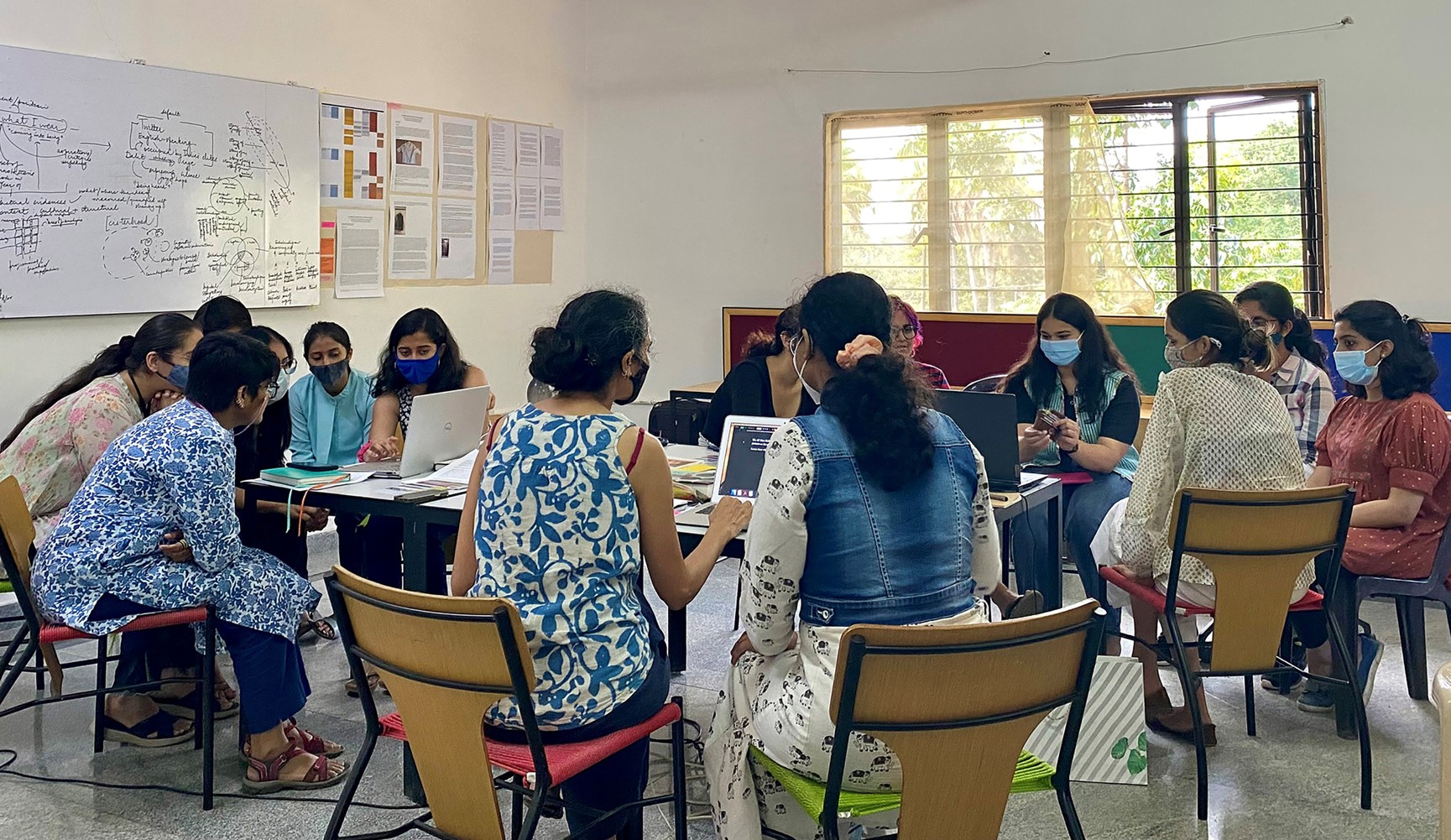
Image: Studio participants with visiting peers, undergraduate students, and faculty members during the semester-end studio exhibition (December 2022). The second iteration of Care Matters and Justice Dreams studio invited students to produce biographical critiques of care work involving technological systems, including, but not limited to, digital technologies that track, surveil, or characterize people’s lives around measures of health, gender, sexuality, labour, caste, and even dignity.
The studio integrated seminar on Decolonizing Design? followed Eve Tuck and K. Wayne Yang’s reminder that “Decolonization is Not a Metaphor” (2012) to question and unpack the received ontologies and logics of design, building a critical understanding of how design technologies, including digital technologies, can be colonizing strategies when practiced as apolitical and ahistorical tools that aid or exacerbate oppression, both land- and community-based.
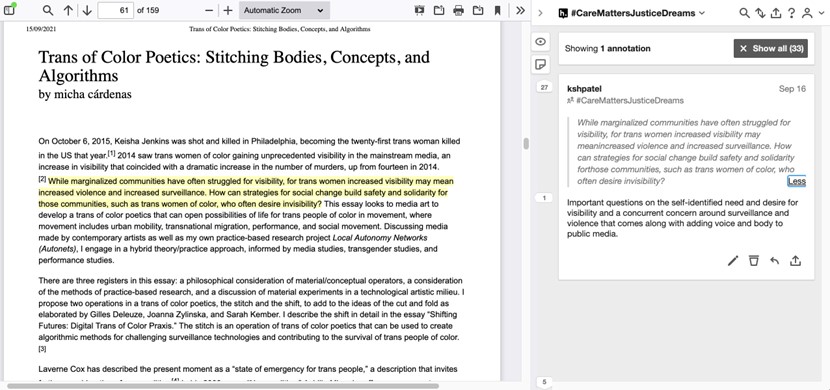
Image: Annotation of course materials on Hypothes.is not only facilitated reading, annotating, and discussion in community both asynchronously and synchronously, but also served as a living set of references and notes for all participating seminar members throughout the semester and beyond.
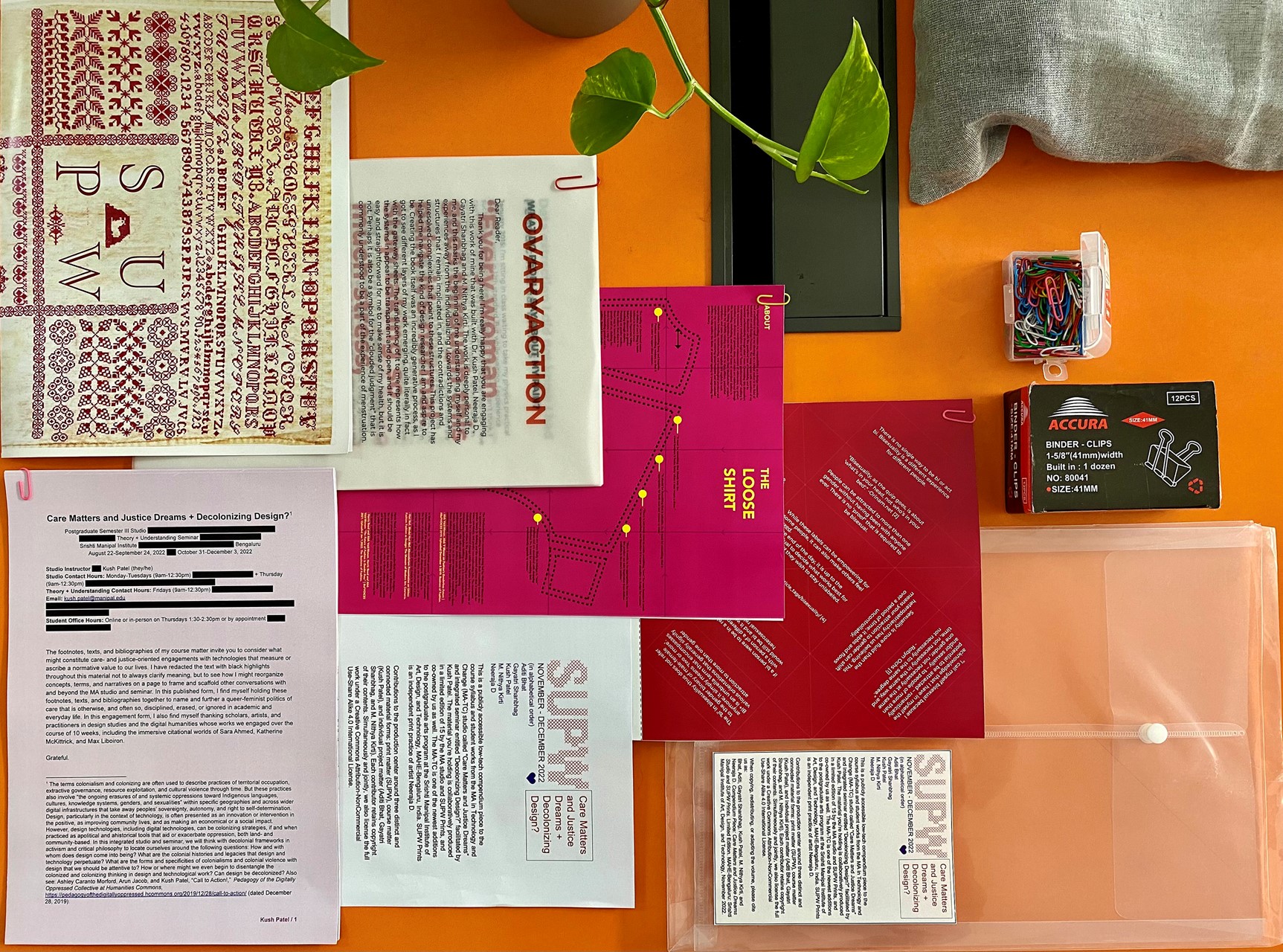
Image: Alongside individually authored interactive games and critical essays, the second iteration of Care Matters and Justice Dreams Studio produced a publicly accessible low-tech compendium piece to the course matter and student works in a limited edition of 15 in collaboration with artist Neeraja D’s SUPW (Super WomXn) print practice. Please get in touch with me if you would like to access this material.
“The Office of Anti-Inequity and Anti-Exclusive Excellence” was a response to the Interlude 2022 theme of Inhabiting Learning as well as the sub-theme of our working group entitled Scaffolds: As both in-situ forms and pedagogical supports, scaffolds draw attention to the making, maintaining, and repairing of structures that render the experience of learning possible or even deliberately impossible for people. How might we conceive of new institution-ing scaffolds and its labor to achieve the desired goals of a cooperative, just, and liberatory education not just temporarily but also ongoingly?
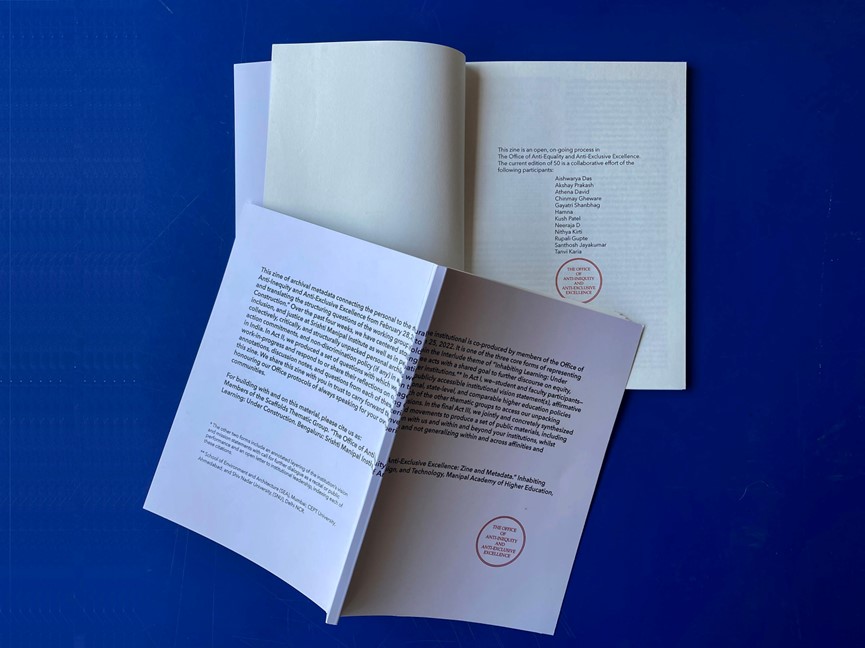
Image: This zine of archival metadata connecting the personal to the structural via the institutional was co-produced by members of the Office of Anti-Inequity and Anti-Exclusive Excellence from February 28, 2022, to March 25, 2022. It was one of the three core forms of representing and translating the structuring questions of the working group Scaffolds, with the other two materials being an annotated layering of the institution’s vision and mission statements with call for further dialogue as a public performance and an open letter to institutional leadership, indexing each of these citations.
Just Futures Co-lab and Public Seminar Series
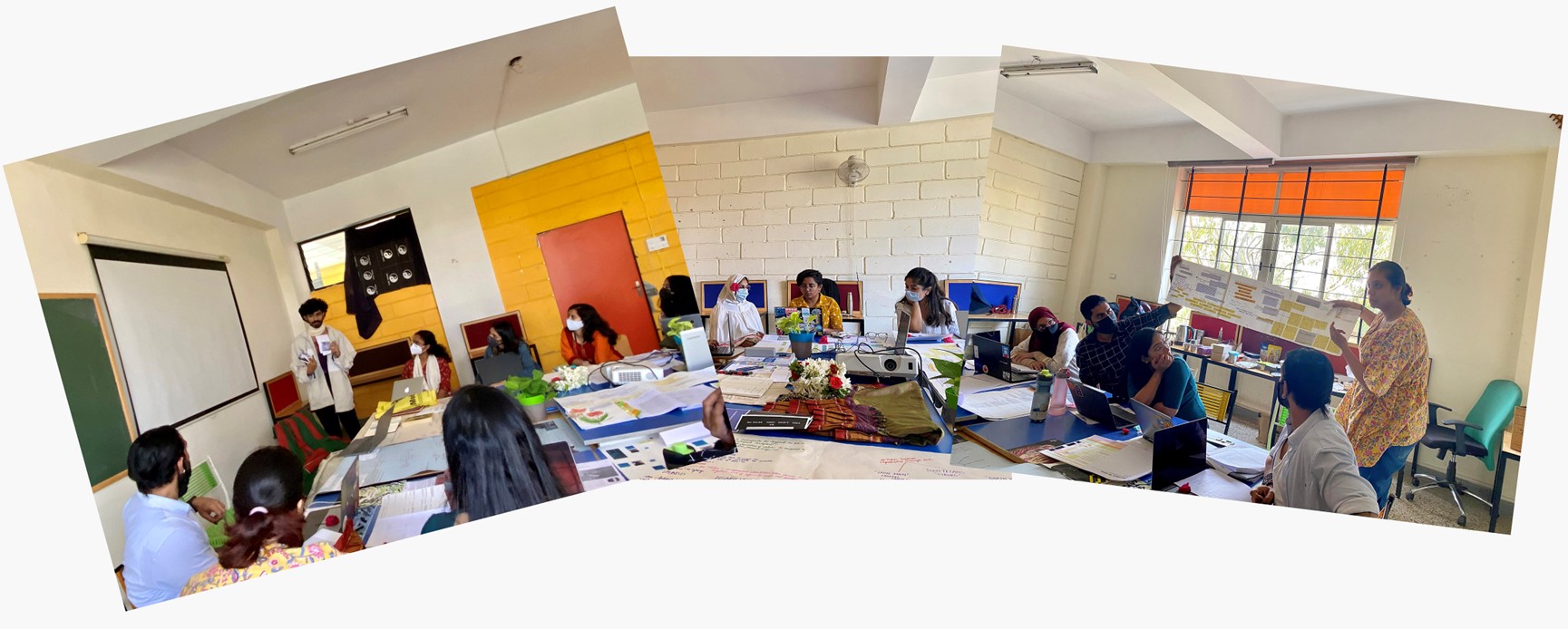
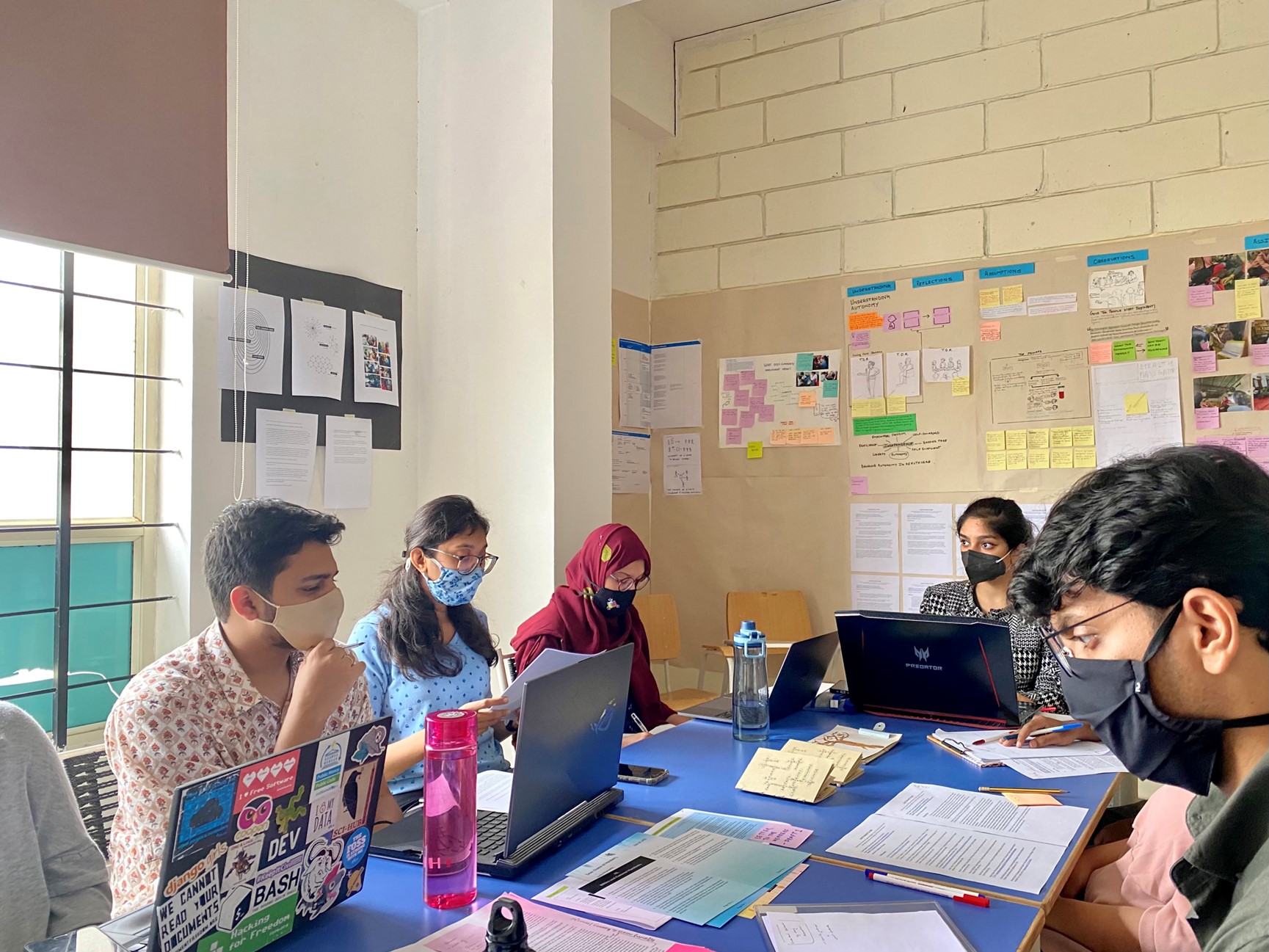
Image: Seminars integrated into the MA in Technology and Change studio and Just Futures Co-lab program constitute a space for engaged scholarship and pedagogy, complementing and deepening discourse building in critical design and digital humanities at the post-graduate level at SMI. To learn more about the lab, please visit: Just Futures Co-lab
